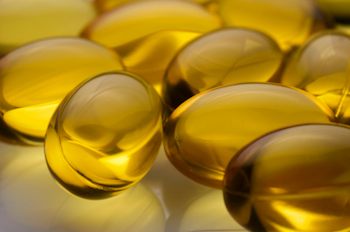High vitamin D levels may increase breast cancer survival
Friday 7 March 2014 - 8am PST
MNT FeaturedAcademic Journal
Current ratings for:
High vitamin D levels may increase breast cancer survival
High vitamin D levels may increase breast cancer survival
Past studies have claimed that vitamin D may reduce the risk of heart disease, bone fractures and even depression. Now, new research suggests that breast cancer patients with high levels of the vitamin in their blood are twice as likely to survive the disease than patients with low levels.
The researchers, led by Prof. Cedric F. Garland of the University of California, San Diego School of Medicine, recently published their findings in the journal Anticancer Research.
Vitamin D - a fat-soluble vitamin - is important for regulating the absorption ofcalcium and phosphorus in our bones.
The body's main source of the vitamin is from the sun, but some foods - such as oily fish, eggs and fortified fat spreads - contain the vitamin in very small amounts. Supplements are also available to boost vitamin D intake.
Prof. Garland notes that his past studies revealed an association between low vitamin D levels and an increased risk of premenopausal breast cancer. From this, he decided to look at the link between 25-hydroxyvitamin D - a metabolite that the body produces from vitamin D ingestion - and survival rates of breast cancer.

Researchers have found that breast cancer patients with high vitamin D levels in their blood have a 50% lower fatality rate, compared with those who have low levels of the vitamin.
The research team conducted a statistical analysis of five studies that looked at the link between 25-hydroxyvitamin D and breast cancer.
The studies included a total of 4,443 patients with breast cancer and were performed between 1966 and 2010. All patients were followed for an average of 9 years.
Patients were divided into groups dependent on the levels of 25-hydroxyvitamin D in their blood. Women in the "high" group had an average of 30 nanograms per milliliter (ng/ml) of 25-hydroxyvitamin D in their blood, while women in the "low" group had an average of 17 ng/ml in their blood.
The investigators note that the average blood level of 25-hydroxyvitamin D for breast cancer patients in the US is 17 ng/ml.
High levels of vitamin D 'may halve breast cancer fatality'
The team found that women who had high levels of 25-hydroxyvitamin D in their blood had around a 50% lower fatality rate, compared with women who had low levels of 25-hydroxyvitamin D in their blood.
Explaining why he believes vitamin D decreases fatality rates for breast cancer patients, Prof. Garland says that vitamin D metabolites increase communication between cells by activating a protein that halts aggressive cell division.
"As long as vitamin D receptors are present, tumor growth is prevented and kept from expanding its blood supply," he adds.
"Vitamin D receptors are not lost until a tumor is very advanced. This is the reason for better survival in patients whose vitamin D blood levels are high."
But the researchers point out that these findings could be a result of reverse causation. They explain that in more serious breast cancer cases, it is possible that 25-hydroxyvitamin D levels were reduced, therefore causing early death.
"If that were so, 25-hydroxyvitamin D could be a biomarker for severity of cancer, rather than a factor that caused longer survival," they add.
They say this possibility could be ruled out with further clinical trials.
'No reason why people should not increase vitamin D intake immediately'
The National Institutes of Health recommend that adults up to the age of 70 should have a vitamin D intake of 600 IU each day, while those over 70 should have 800 IU each day.
Although Prof. Garland says further research is needed to confirms the team's findings, he believes there is no reason why people should not increase their vitamin D intake now, after confirming with their health care provider that it is safe to do so.
He refers to a study he conducted in 2011, which found that a 50 ng/ml level of 25-hydroxyvitamin D in the blood - a level that can be reached with an intake of 4,000 international units (IU) of vitamin D a day - reduces breast cancer risk by 50%.
The investigators say that based on their findings, patients with the disease may benefit from having 25-hydroxyvitamin D blood concentrations measured and adjusted to within normal range (30-80 ng/ml).
Study co-author Prof. Heather Hofflich, of UC San Diego School of Medicine, adds:
"The study has implications for including vitamin D as an adjuvant to conventional breast cancer therapy."
Benefits of vitamin D questioned
But not all studies have heralded increased vitamin D intake for its benefits to health.
Earlier this year, Medical News Today reported on a study published in The Lancet Diabetes and Endocrinology that questioned the health benefits of vitamin D supplementation.
Findings from this study suggest that vitamin D supplements are unlikely to reduce the incidence of heart attack, heart disease, stroke, bone fractures and cancer.
Last year, another study cast doubts on the benefits of vitamin D supplements. This study found that low vitamin D levels may be a consequence of ill health, not a cause.
Given the mixed views on vitamin D intake, we ran a feature in January asking: are vitamin D supplements really good for our health? This article weighs both sides of the argument and discusses whether health care professionals should be regularly discussing vitamin D intake with patients.
Written by Honor Whiteman




No comments:
Post a Comment